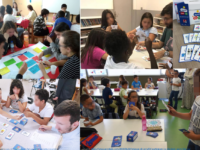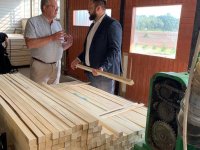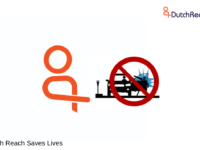“Agora Falo Eu!" is an educational card game consisting of 8 question cards and 120 image cards destined for children between 7 and 13 years old. During the game, participants are invited to answer
the question cards with the picture cards they are given.
The game aims to help children explore themes of citizenship and development; define their interests and identify the most suitable media to work on citizenship and civic participation; and promote
engagement in democracy.
Innovation Tag: People Networks/Communities of Practice
With less than a third of world researchers or STEM graduates as women, accelerating achievement of gender parity is not just a fairness argument but an economic imperative. EY and Tribal Planet have launched an innovative gamified platform that engages girls from underserved communities in fun, practical and gamified STEM learning. Through the platform, the innovation has energised public-private partnership, connecting governments and citizens to create an ecosystem of support, awareness and…
We created the BizLab, Human Centred Design (HCD) Training Academy to develop skills public servants will need for the future and create a citizen-centred culture in the Australian Public Service.
This is not just another training course.
We not only train participants in HCD tools and techniques, but we make that learning stick with our unique Alumni support system
We often hear stories about the interpretations of laws and attitudes of public institutions. This year in Latvia for the first time the initiative “An Official Shadows an Entrepreneur” was launched, allowing for the public servant to broaden his view and “step into entrepreneur's shoes” to evaluate how the regulation is applied in practice and what requires further improvements. The initiative promotes a dialogue between the state and the business to reduce the administrative burden.
Learning Together for Better Public Engagement (Learn4PE) was a pilot initiative designed to build public engagement capacity across the Government of Canada. In its first iteration, participants spent five weeks learning together in English and French, both online and by participating in live sessions with experts. While targeted towards federal public servants, registration was open to all, enabling the exchange of relevant ideas and resources.
CORO, Co-lab is the result of an ambitious vision of creating innovative collaborations. The local innovation platform creates new sustainable solutions to complex societal challenges. It takes place in cross-sectorial cooperation’s between public organizations, academia, civil society and businesses across industries. Through the activities, new sustainable scalable solutions are developed, using the entire area of Roskilde as a unique real-life test platform with demonstration facilities.
IPGAIN (Intellectual Property Global Artificial Intelligence Network), created by IP Australia, is a worldfirst marketplace providing global access to pioneering artificial intelligence (AI) and machine learning (ML) tools. IPGAIN is like an app store, sharing ground breaking technology that solves challenges unique to the IP community. This initiative is driving collaboration and reducing duplication between national IP offices, to improve quality and consistency across the global IP community.
Dutch Reach Project (DRP) closes a serious gap in existing road safety efforts to prevent “dooring,” a common, feared & at times fatal crash caused when exiting motorists - using their near hand - suddenly throw open their car door into the path of a bicyclist or other vulnerable road user (VRU).
To prevent dooring, DRP promotes the Dutch Reach (DR): reaching across to the door with the far hand to open - a much safer method.
The DR project is already gaining increasing attention and being…
SciTech DiploHub is a pioneering nonprofit public-private partnership backed by leading research centers, universities, non-profits, startups, corporations and public institutions that deploy Barcelona's science and technology diplomacy strategy. It has the mandate to elevate the role of science, technology, and cities in foreign policy and make Barcelona a more influential player on the global stage through its contribution to sustainable development and the global public good.
The iSPEX is a small attachment that can be fitted to any mobile phone to measure particulate matter in the air. The fact that this piece of technology empowers anyone to monitor air quality (citizen science) creates a raft of new possibilities to collect large volumes of data in a highly efficient and cost-effective manner. Aside from that, it raises awareness of particulate matter among the population.




